Abstract
1. Healthy student volunteers (n = 103) participating in ongoing clinical pharmacological research completed the Dutch Personality Inventory (DPI), the Dutch version of the Spielberger State-Trait Anxiety Inventory (STAI-DY) and the Dutch version of the Sensation Seeking Scale (SSS). 2. The volunteers were more extrovert (P less than 0.001), more flexible (P less than 0.001), more tolerant or less impulsive (P less than 0.001), had more self-confidence and initiative (P less than 0.001), and were more satisfied and optimistic (P less than 0.01) when compared with the general norm. When compared with a student norm, volunteers had lower levels of state (P less than 0.001) and trait (P less than 0.05) anxiety. The general sensation seeking tendency of volunteers was higher than in the student norm group (P less than 0.001). The volunteers had a greater tendency to thrill-and-adventure-seeking (P less than 0.001) and to disinhibition (P less than 0.01). 3. Hence, volunteers were a selected sample of the total population of students. This may influence the interpretation of pharmacokinetic and pharmacodynamic parameters. 4. Personality screening should be added to the screening procedures for volunteers.
Full text
PDF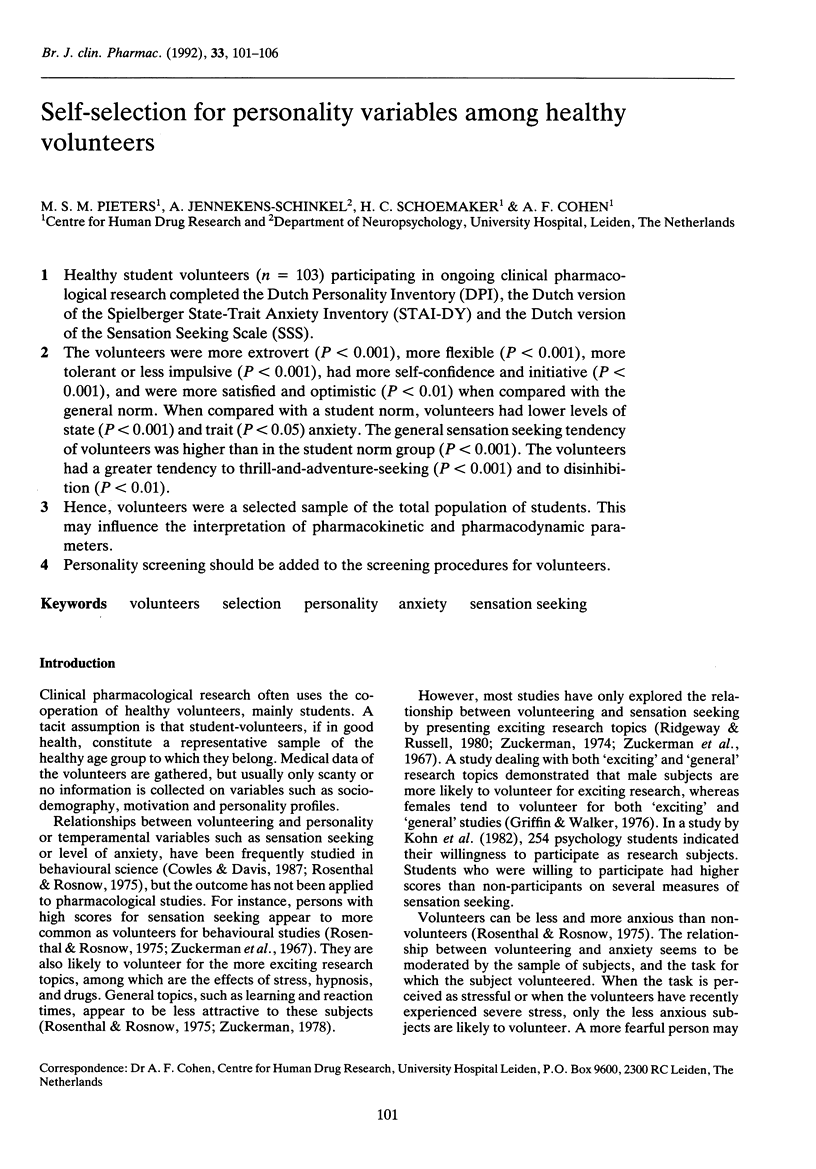
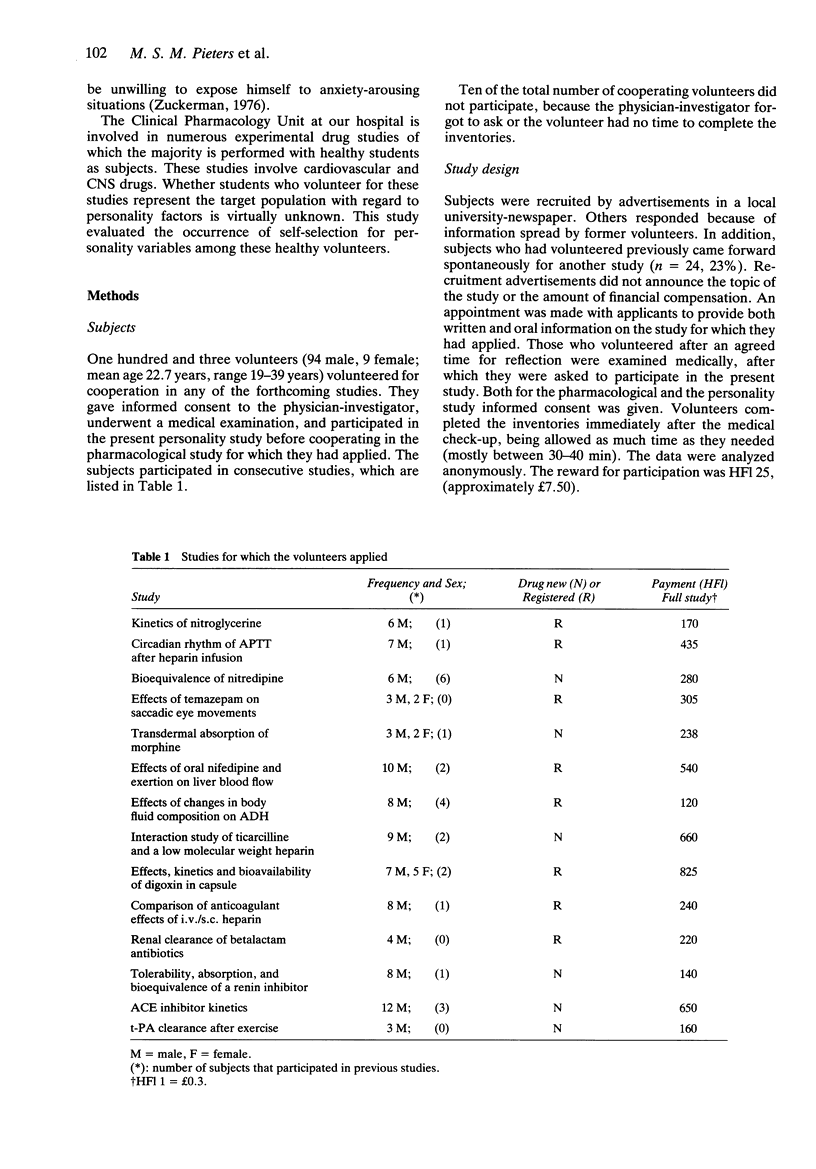
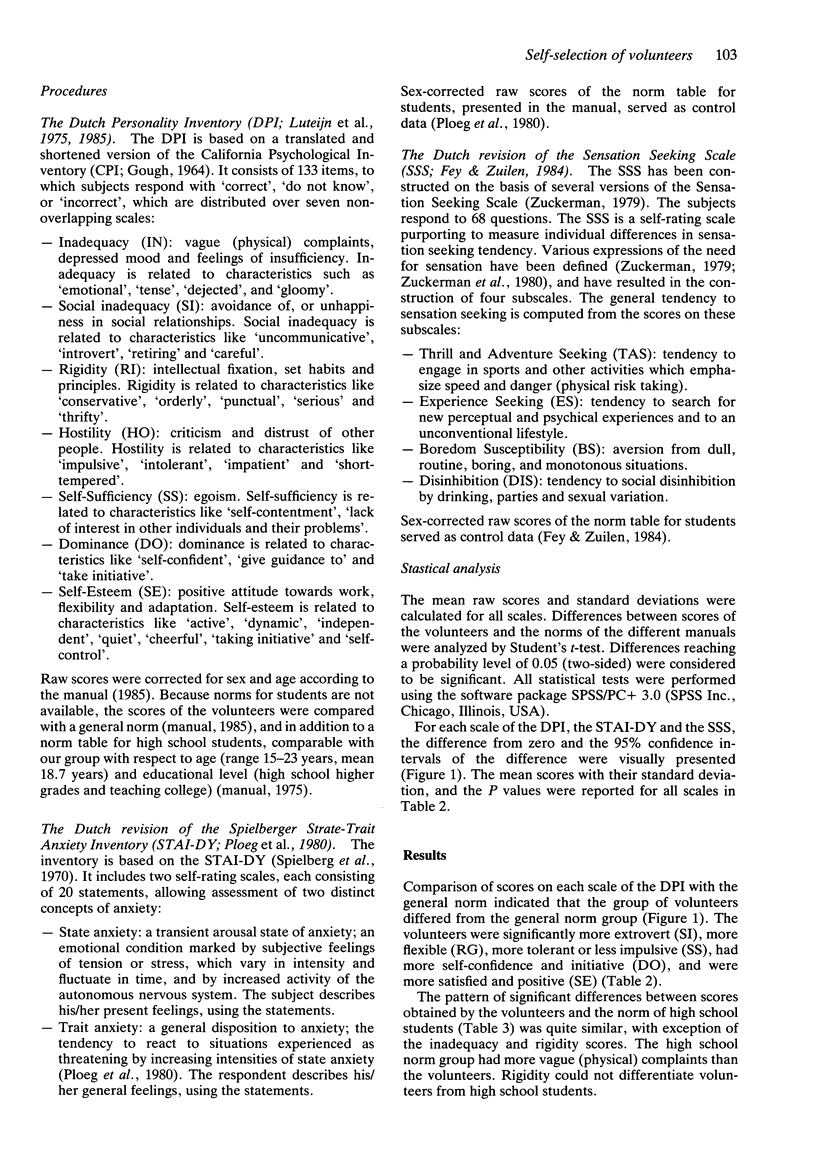
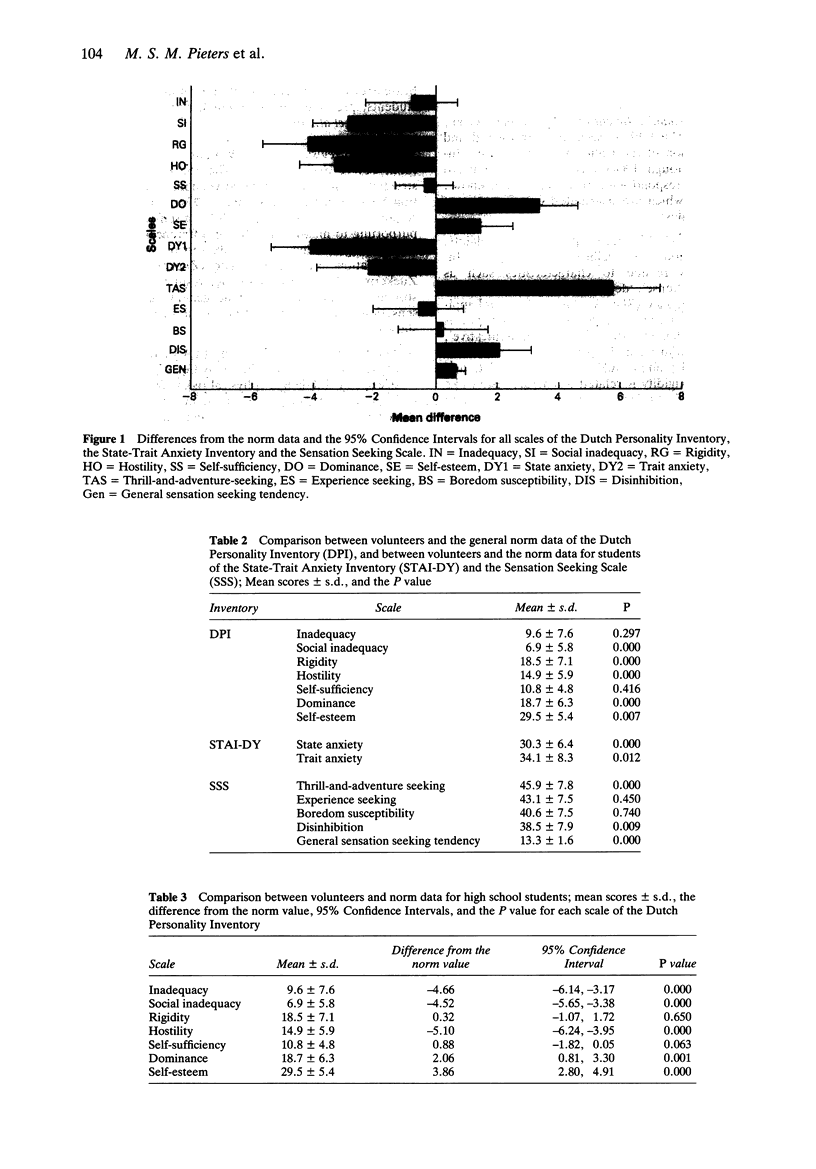
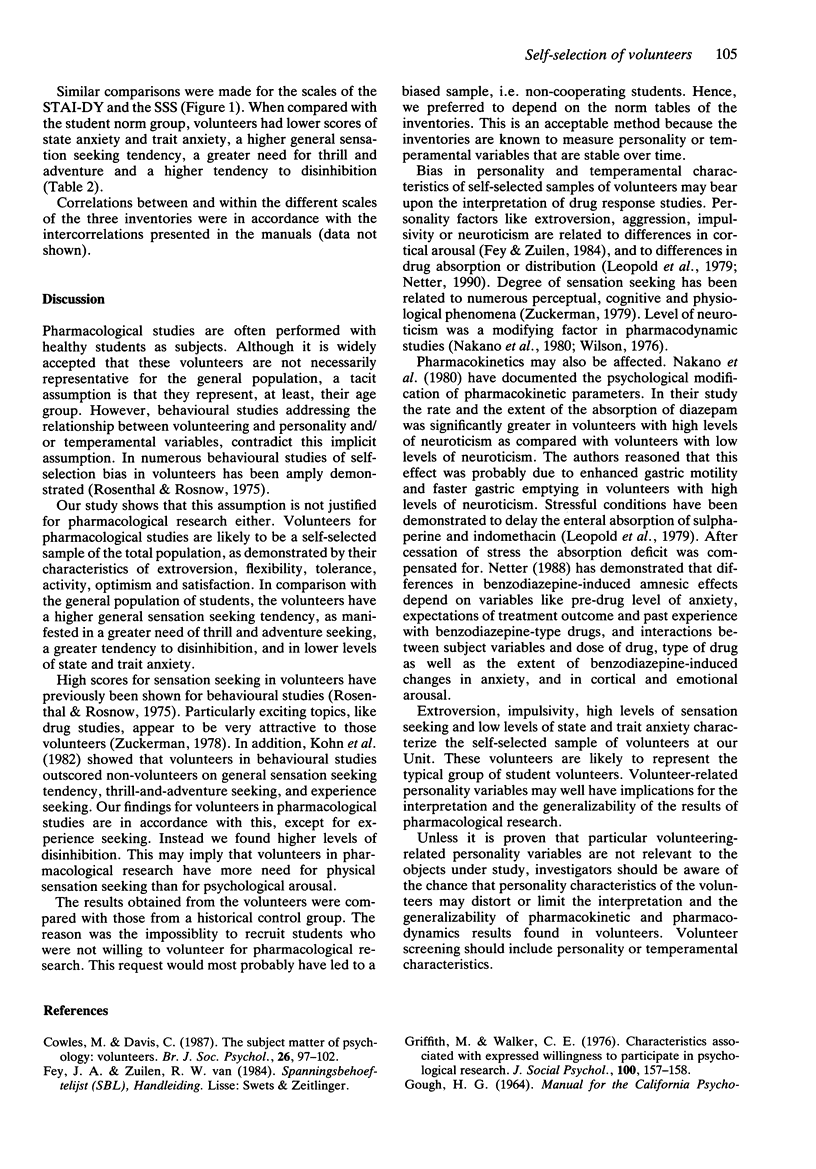
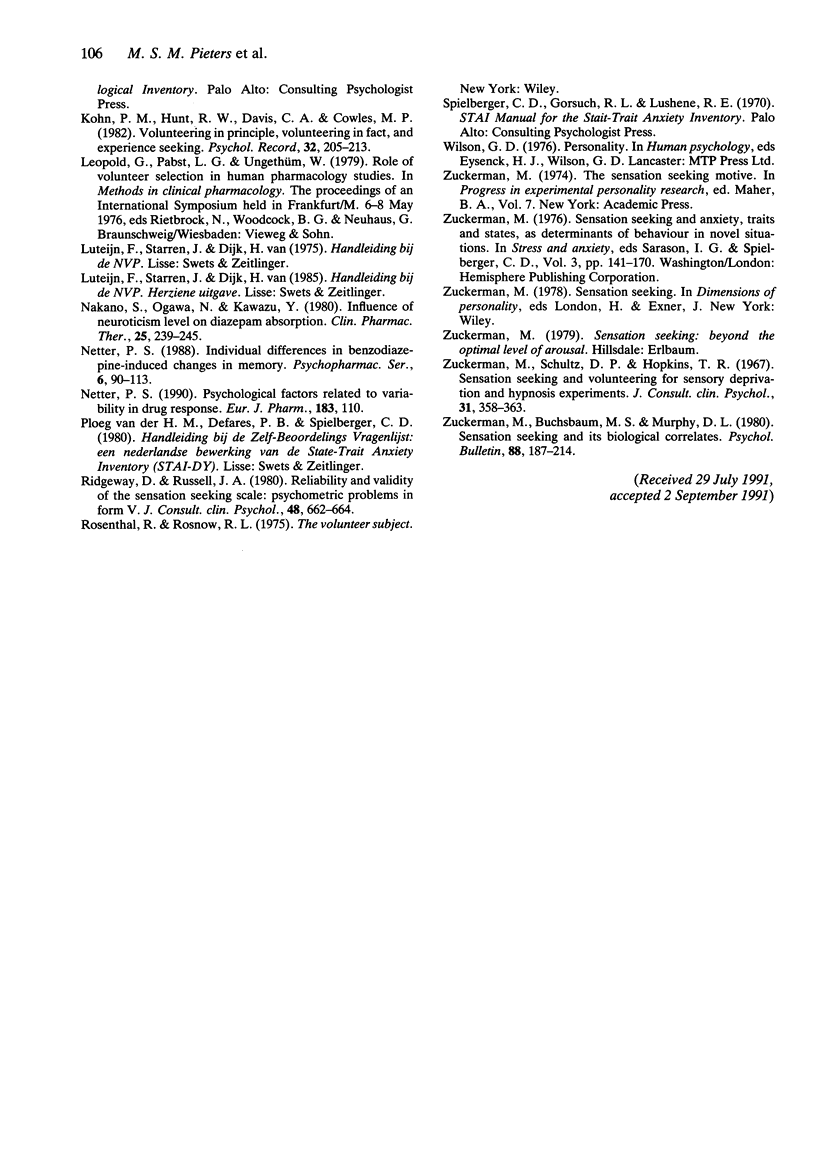
Selected References
These references are in PubMed. This may not be the complete list of references from this article.
- Netter P. Individual differences in benzodiazepine-induced changes of memory. Psychopharmacol Ser. 1988;6:90–113. doi: 10.1007/978-3-642-73288-1_7. [DOI] [PubMed] [Google Scholar]
- Zuckerman M., Schultz D. P., Hopkins T. R. Sensation seeking and volunteering for sensory deprivation and hypnosis experiments. J Consult Psychol. 1967 Aug;31(4):358–363. doi: 10.1037/h0024763. [DOI] [PubMed] [Google Scholar]


